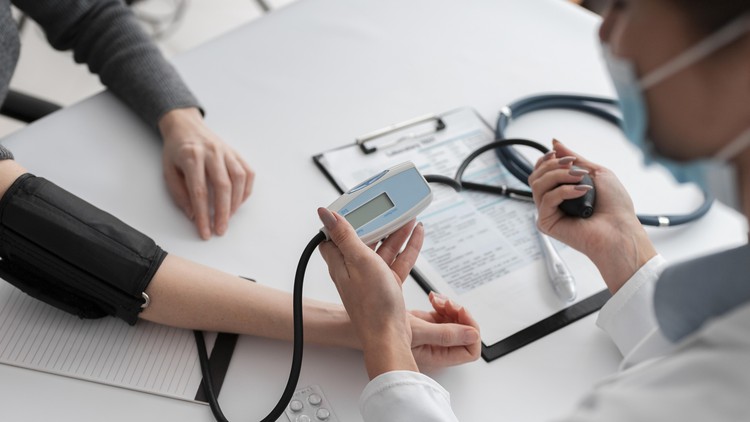Advanced and comprehensive nursing course
- Description
- Curriculum
- FAQ
- Reviews
Hi, My name is Muhammad Mahdi, I have a Bachelor of Nursing. In this course, I will introduce you to many common medical conditions in the medical field and in hospital, which are important for students of medicine, nursing and pharmacy.
In this course I will talk about several medical conditions such as kidney failure and poisoning. Pulmonary edema. I have pneumonia. Asthma and many other medical conditions.Hello, if you are a nurse or studying nursing, you are in the right place, exclusively the comprehensive and intensive nursing course, which is a nursing provider course, in which we explain everything related to theory in the field of nursing, we will talk about diseases and their causes and talk about research methods, health, heart diseases, blood disorders and problems of psychology And medical terminology and basics of nursing and other lectures.
Nursing is an art, science and humanity, and it is providing society with certain services that are therapeutic in nature that help the individual to remain healthy, and prevent complications resulting from diseases and injuries. It has both technical and moral (psychological and social) aspects. Nursing is a work performed to assist an individual – sick or healthy – in carrying out activities that contribute to improving his health or restoring his health in the event of illness or “death in peace and safety.” ( World Health Organization )
Nursing is a science and an art that takes care of the individual as a whole – body, mind and spirit – and works to advance and preserve the individual spiritually, mentally and physically and help him recover when he is sick. The concern for the sick individual extends to his family and society, and this includes taking care of his environment and providing health education through guidance and good example (International Health Association Bulletin ).
-
31overview of health promotionVideo lesson
-
32Developing a health promotion planVideo lesson
-
33health promotion modelVideo lesson
-
34THEORIES OF HUMAN BEHAVIOR AND HEALTHVideo lesson
-
35Risk factors and health promotionVideo lesson
-
36Current Factors Affecting Nursing Roles In Health PromotionVideo lesson
-
41calicum metabolisimVideo lesson
-
42ricketsVideo lesson
-
43PoliomyelitisVideo lesson
-
44Measles mumps and rubellaVideo lesson
-
45Meningitis and EncephalitisVideo lesson
-
46_PertussisVideo lesson
-
47PneumoniaVideo lesson
-
48BronchiolitisVideo lesson
-
49uppre aiway obstructionVideo lesson
-
50Nephrotic syndrome 2Video lesson
-
51UTIVideo lesson
-
52glomerular diseaseVideo lesson
-
53Renal tubular acidosisVideo lesson
-
54nephrotic syndromeVideo lesson
-
55Renal failureVideo lesson
-
56Renal ReplacmentVideo lesson
-
57Trancefution TherapyVideo lesson
-
58epilepsy 1Video lesson
-
59epilepsy 2Video lesson
-
60diabetesVideo lesson
-
61DKAVideo lesson
-
62Neuromuscular disordersVideo lesson
-
63Cardiomyopathy 1Video lesson
-
64Cardiomyopathy 2Video lesson
-
65Contraceptive pericarditisVideo lesson
-
66Chronic Congestive Heart FailureVideo lesson
-
67MyocarditisVideo lesson
-
68Hypertensive heart diseasesVideo lesson
-
69MVDVideo lesson
-
70VHDVideo lesson
-
71ASVideo lesson
-
72ARVideo lesson
-
73Cardiac Arrhythmias 1Video lesson
-
74Cardiac Arrhythmias 2Video lesson
-
75Cardiac Arrhythmias 3Video lesson
-
76congenital heart diseaseVideo lesson

External Links May Contain Affiliate Links read more





